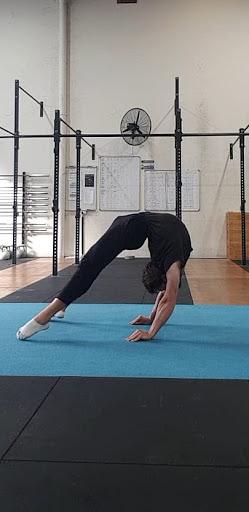When it comes to staying in shape year round, there are certain factors contributing to how lean you can stay that are outside of your control.
With regard to genetics, mutations on the leptin-melanocortin pathway that play a large role in managing appetite along with how much you enjoy food, appear to be very common amongst the obese. If you had this mutation, you may experience extreme euphoria from eating tasty food as well as finding it hard to feel full. Even though there are things you can do to minimise this, having this specific gene mutation will make your efforts in losing weight (and keeping it off) that much more difficult.
If both of your parents have always been lean, it’s very likely that you will be too. Some of this is genetic but a lot of it is actually behavioural. Check out the findings of this study of 428 kids aged 4-5 whose parents were either lean or obese.
“Children from the obese/overweight families had a higher preference for fatty foods in a taste test, a lower liking for vegetables, and a more 'overeating-type' eating style. They also had a stronger preference for sedentary activities, and spent more time in sedentary pastimes. There were no differences in speed of eating or reported frequency of intake of high-fat foods.”
If you were exposed to this way of living as a child and then across your lifespan became overweight, this will indeed have an impact on how lean you can stay later in life. We have discussed in another article how once we have added fat cells we can only shrink them, not get rid of them.
Obesity researcher, Dr Kirsty Spalding has demonstrated that individuals accumulate the majority of their fat cells from infancy to their mid 20s. This is also why individuals who were lean growing up, have a much easier time staying lean in adulthood. They simply have less overall fat cells leading to better appetite regulation, less inflammation and higher levels of NEAT (Non Exercise Activity Thermogenesis) that allow them to maintain a healthy body weight with relative ease.
Now it’s important to remember that genes are not everything. Genetics load the gun, but the environment does pull the trigger meaning there are things within your lifestyle that potentially can be changed.
Taken to the extreme, even if you did have the above genes but you were placed in an environment that simply did not allow you to consume that many calories (prison, metabolic ward, third world country) you would definitely become a much leaner version than what your “genetics” would predict.
Instead of testing what genetics you do and don’t have, a better strategy would be to ask yourself “is my environment promoting a leaner lifestyle or a more obesogenic one?” and then act accordingly. Granted, there are going to be aspects that are more challenging for others but the goal here is to focus on what you can change vs what you can’t in the immediate future.
At Home

If you have to have them in the house due to children, spouses or housemates then do your best to keep these foods within closed cupboards at the least. We are far more likely to consume food when we see it, meaning if you’re walking past the kitchen all day, then it’s only a matter of time before you cave. We actually recommend keeping no food out on display as this can encourage snacking/grazing behaviour in general which is another habit most want to minimise.
From an exercise perspective, having some equipment lying around the house has been shown to improve exercise adherence over the long term. Research done on 148 obese, sendetary women demonstrated that over the course of 18 months, incorporating multiple short workouts across the day (due to having exercise equipment at home) resulted in more weight loss, more enjoyment from exercise and overall adherence when compared to short and long workouts performed at the gym.
The great thing here is that you don’t actually need to spend a heap of money to achieve this either. A skipping rope, some boxing gloves and a bag, or a small pair of adjustable weights along with some bands can all be enough to encourage movement. I personally have a spin bike at home and as much as I love using it, I would never go to the gym to do it which just demonstrates the power of the environment even further. I thoroughly enjoy doing cardio but there is far more resistance if I need to travel for it.
At Work

You don’t have control over who brings what but you do have control over what is on display at your desk. There should be nothing on your desk that reminds you of food as the kitchen should be the only “environmental cue” you get when it comes to eating. Don’t keep snacks in the draw (yes, this includes healthy ones) unless the portion is controlled and you cannot leave your desk for an extended period of time.
For example, having 20g of almonds with a small banana in your drawer vs having an entire bag of almonds means that you will only consume the amount that is in line with your goals.
From an overall activity standpoint, try using public transportation or park a few blocks away from your workplace as this will encourage you to walk more. For your lunchtime break, try getting some fresh air and better yet, walk with another colleague that you enjoy spending time with.
Make an effort to get up every hour out of your chair and walk around the office for 5-10 minutes, even if it is just to go get some water, to the toilet or speak to a colleague. If your boss questions you about it, show them this paper showing how small breaks enhance productivity when compared to a long continuous work bout.
Every workplace is going to be different but the above principles can be applied virtually anywhere. The main thing to keep in mind is to always be asking yourself “Is this environment conducive to the person I want to be?” and then doing what you can to align your surroundings with that identity.
Friends & Social Circle

That is a huge amount but when you really think about it, it makes perfect sense. We are social creatures and we are always looking to contribute to “our tribe”. This has nothing to do with race, ethnicity, gender or anything political. It’s the tribe YOU identify with and want to be a part of.
I personally train at a gym where there are many individuals doing crazy things I would never have thought was possible if I didn’t see it, which is only making me step up my game as I want to contribute to “that tribe”.
Here at RNT, I am surrounded by colleagues who always maintain a high standard of work across the board which only motivates me to do the same.
I used to surround myself with people who prioritised partying all weekend, who didn’t care for performing at a high level nor had any consideration for their health. Compared to them I was still doing OK as I always was active and cared about my physical appearance but it wasn’t until I removed myself from that environment where I truly levelled up and started living a life I was proud of.
If you want to maximise your own lifestyle potential, surrounding yourself with the right people should be a very large priority.
“The dream in your heart may be bigger than the environment in which you find yourself. Sometimes you have to get out of that environment to see that dream fulfilled.”
- Maarten Van Doon
Stress Load
Out of every variable, this is going to be the one that will be influenced by your lifestyle the most. To get the most out of your physique, if you can dedicate 60-90 minutes of hard weight training 3-4 times a week you will be getting extremely close to your potential.
But there is a big caveat here. Just because you can get to the gym and hypothetically, could bring your A game to every session (which again, is not realistic even under the best conditions) your ability to adapt to that training is extremely multifaceted.
Does your lifestyle allow you to get 7-8 hours of high quality, uninterrupted sleep 365 days a year? Can you keep the exact same sleep schedule every single day including weekends, holidays and special events?
I have yet to come across anyone who can actually do that as for most people, not only is that unrealistic if you have a family, responsibilities and hobbies outside of fitness, but for overall long term happiness it just does not sound like a life that is enjoyable.
Sleep is extremely important as that is when our body adapts to all the training stress we are applying. If we don’t get enough, we will be selling ourselves short on all that we can accomplish in and of the gym.
If you have kids, a partner, a job or anything other responsibility that doesn’t allow for the optimal amount of sleep every single night then you need to accept that your results may not be as good. For 99.9% of the population, this is perfectly OK but depending on how much sleep you’re missing out on, you could be leaving a lot of “potential” on the table.
We only have a finite amount of stress we can adapt to meaning if you have a lot going on via work, relationships and other responsibilities then you need to be realistic about how much progress you can make with your physique.
Elite athletes have the means to train a lot but can also recover as optimally as possible. For many, everything is taken care of for them. They get paid to train and perform, they have personal chefs preparing their food, coaches taking care of their programming/training, massage therapists for soft tissue work and any other outside stressors are minimised.
You do not have the luxury to live like an elite athlete so to expect yourself to look or perform like them is simply wishful thinking.
A Real World Example
Just to be clear, we are not telling anyone to try living like an athlete as we are just trying to demonstrate how all of us hit a “lifestyle limit” vs a “genetic limit”. The people who get the best physical results are usually the same people who have invested far more time into pursuing that endeavour. What the majority don’t appreciate though is the amount of sacrifice that also must go with that level of dedication.
If we were to look at someone wanting to maintain a very low body fat all year round, the fantasy is far more enticing than the actual reality. Most people think that when they finally get abs they will be happy, energetic, more confident and conquer the world. Unfortunately, this just isn’t the case as most people simply do not want to keep doing what it takes to stay in that sort of condition nor accept the realities of living there.
I maintain an extremely high level of activity each day as I truly enjoy exercise. It’s literally my favourite activity in the world to do (sad I know), even on days where I don’t feel like it. I will always show up to train as 99% of the time, I end up feeling better than when I walked in. Being on the leaner side helps my progression on certain gymnastic skill elements along with my performance on the bike. Each day I will:
- Hit the gym 1.5-2 hours in the gym (varied intensity throughout the week, 4-5 harder sessions with two balance focused sessions)
- Walk 12-15k steps (more on weekends)
- Cycle for 50 minutes (varied intensity throughout the week, 2-3 harder sessions with 4-5 easier rides)

I am content with the amount of muscle mass I have (for now) but I know that staying at this level of leanness, I do walk a tightrope of overreaching meaning I cannot handle as much total work. This could potentially impede my recovery and actually slow down my progress if I’m not paying attention to my programming.
I accept that I won’t be gaining any appreciable amounts of muscle mass and at best, will just maintain what I have due to only consuming enough calories to stay at maintenance which is roughly between 3300-3500 calories per day. For the amount of activity I’m doing this may appear relatively low but for the most part, my hunger and appetite stays in check, I can get sufficient sleep (for me), I’m not overly food focused and I can perform at a high level consistently. I still track and weigh all my food while also taking my body weight measurement each day as I don’t find these behaviours stressful nor take up a lot of cognitive bandwidth.
I live alone and work from home meaning I can cater my environment just the way I want it. I am in bed most nights by 9-9:30pm which is a big win for me as it used to be 7pm (at my leanest which wasn’t sustainable) but still struggle to sleep some nights. I mingle with others wanting to perform at a high level and I am obsessed with learning about mind and body transformation. I am constantly trying to solve problems and love producing content like this but as you can probably see, this is a massive portion of my life meaning staying extremely lean is just a result of me going about my day to day.
I accept that I won’t be gaining any appreciable amounts of muscle mass and at best, will just maintain what I have due to only consuming enough calories to stay at maintenance which is roughly between 3300-3500 calories per day. For the amount of activity I’m doing this may appear relatively low but for the most part, my hunger and appetite stays in check, I can get sufficient sleep (for me), I’m not overly food focused and I can perform at a high level consistently. I still track and weigh all my food while also taking my body weight measurement each day as I don’t find these behaviours stressful nor take up a lot of cognitive bandwidth.
I live alone and work from home meaning I can cater my environment just the way I want it. I am in bed most nights by 9-9:30pm which is a big win for me as it used to be 7pm (at my leanest which wasn’t sustainable) but still struggle to sleep some nights. I mingle with others wanting to perform at a high level and I am obsessed with learning about mind and body transformation. I am constantly trying to solve problems and love producing content like this but as you can probably see, this is a massive portion of my life meaning staying extremely lean is just a result of me going about my day to day.
Wrapping Up
I believe there are genetic factors at play that allow me to sustain a lower body fat level than most and feel fine, but the lifestyle I have created for myself is what is truly sustaining it. Has this pursuit meant other things have had to take a back seat? Definitely. But I also know that if my life circumstances ever do change, I will make it work to the best of my ability as it’s a massive priority for me.
Would I be able to get the same results? Most likely not and that is 100% OK as there is far more to life than being shredded, being muscular or chasing any other physical goal. Remember, your physical body is the vehicle for you to pursue everything else you want out of life and should not just BE your life.
It would be like spending all of your money on a Ferrari yet you don’t have a home, a career, investments, food, clothes or anything else. Sure you look cool when you’re driving it but you literally offer nothing else.
If you enjoyed the topics covered today, we dive deeper into optimising your environments, auditing relationships, discovering your own lifestyle solution plus many other topics in our MNM curriculum as part of the learning experience our members get through RNT Pro. Click here to find out more and finally get the tools to not only get in shape, but finally stay there for good.
Would I be able to get the same results? Most likely not and that is 100% OK as there is far more to life than being shredded, being muscular or chasing any other physical goal. Remember, your physical body is the vehicle for you to pursue everything else you want out of life and should not just BE your life.
It would be like spending all of your money on a Ferrari yet you don’t have a home, a career, investments, food, clothes or anything else. Sure you look cool when you’re driving it but you literally offer nothing else.
If you enjoyed the topics covered today, we dive deeper into optimising your environments, auditing relationships, discovering your own lifestyle solution plus many other topics in our MNM curriculum as part of the learning experience our members get through RNT Pro. Click here to find out more and finally get the tools to not only get in shape, but finally stay there for good.

.png)
.png)